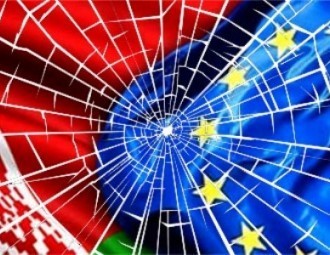Interlocutors in Minsk are calling for Europeans to take note of the regime’s subtle changes

However, Belarus will continue to be Europe’s most isolated state and the regime will continue to proclaim solidarity with Russia.
This summer’s crisis in eastern Ukraine has made the European Union and Belarus keen to develop a more constructive relationship with each other. Although there are still major obstacles to meaningful rapprochement, Belarus is not nearly as immobile or isolated from the West as most analysts think. Several EU member states are interested in exploring a modest degree of engagement with the Belarusian regime, in part because the Ukraine crisis has underscored the need to find new ways of shoring up the Eastern Partnership. Watching events in eastern Ukraine with some anxiety, the Belarusian regime has put out feelers to the EU; Belarusian President Lukashenka has sought to position himself as the central mediator in negotiations between Russia, Ukraine and Western powers in Minsk over the last month.
Despite hosting the Minsk talks, the relationship between Lukashenka and Russian President Vladimir Putin has cooled recently. EU goods subject to Russian sanctions have trickled into Belarus, been repackaged, and then sold into Russia. Emboldened by Kazakhstan, Minsk’s decision to push back against the scope of Russian ambitions for the Eurasian Union has also been a source of friction with Moscow.
Alongside these regional shifts, Belarusian internal politics are showing signs of change as leaders prepare for the 2015 elections. In June, prominent political prisoner Ales Bialiatski was released. In October, the EU is set to decide on the renewal of sanctions against Belarus. While the measures are likely to be extended, some EU diplomats have pushed for greater leniency. A seven-party opposition coalition has in recent weeks been discussing the possibility of presenting a single candidate in the 2015 elections. Several European organizations have been supporting such platform-building efforts.
Opposition parties are also seeking to collect signatures for a ‘people’s referendum’ covering a range of social and community issues., like health and education. While this is unlikely to be granted, the effort has engendered a considerable degree of debate on the issues covered in the petition. (It should be noted that some locals see the campaign as being more about individual parties raising their own public profiles than real reform.) Unlike the country’s long-established political opposition groups, new civic organizations are beginning to work on community issues. As civil society shows signs of evolving, there are possibilities for donors to reach out to non-registered NGOs through registered groups that are taking a new interest in civil society. Donors are belatedly shifting their attention from advocacy groups based in Vilnius or Warsaw to more local, citizen-led groups.
Recently, the regime has very tentatively suggested it may be open to dialogue with the Council of Europe and the United Nations Development Program about hate speech, the establishment of an ombudsmanship, and the death penalty. Early talks have not produced major breakthroughs, but nonetheless represent the first steps in what is sure to be a lengthy process. Of course, there are unlikely to be any seismic changes within Belarus or in the EU’s relations with president Lukashenka. But these developments show that internal and external pressures are beginning to drive modest readjustment.
The EU and its member states will be keen to engage Belarus whenever possible. They will not overlook of the country’s numerous political prisoners, but will try to find for areas of cooperation related to technical governance reform, which Lukashenka’s government has indicated a willingness to undertake. The European leaders should also reexamine exactly what names are on the sanctions list, and make overtures to Minsk aimed at encouraging further prisoner releases. Of course, the plight of political prisoners is only one challenge, and should not divert attention from the need for cooperation on gradual, long-term structural-institutional modernization.
Talking with civil society leaders and diplomats at last week’s European Intercultural Festival in Minsk, the feeling is that in the last two to three months the window of opportunity for reform has opened slightly, though it remains narrow. This is due to a combination of regional geopolitical factors and the internal repositioning of some state, political, and social actors. The recent visit of a high-level United States delegation to Minsk is another indicator of the region’s current geopolitical upheavals, and the transatlantic hope for cooperation.
None of this is will radically change the country’s internal politics or its external orientation. Belarus will continue to be Europe’s most isolated state and the regime will continue to proclaim solidarity with Russia. Still, interlocutors in Minsk are appealing to Europeans to take note of the regime’s subtle changes. Lukashenka is looking for areas of low-level, quiet cooperation and strategic counterbalances to Russia; civil society is looking for support in creating small areas of autonomy. Whether European and Belarusian actors are able to take full advantage of this opportunity remains to be seen.
The article was originally published at The Carnegie Moscow Center
-
03.01
-
07.10
-
22.09
-
17.08
-
12.08
-
30.09








































